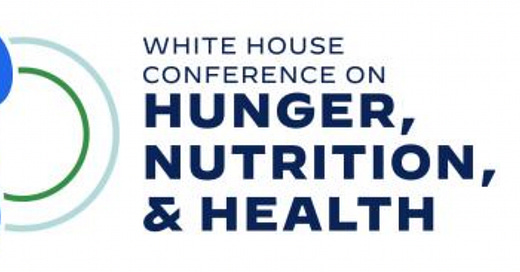Wherefore, White House Conference on Hunger, Nutrition & Health?
Twelve days away, yet still no agenda, in a “secretive” process
The White House Conference on Hunger, Nutrition & Health has been promoted as a landmark event, the first since President Nixon hosted the original one in 1969. Yet only 12 days away, the agenda and other details of the September 28th conference are still a blank, in a process that even insiders have called “secretive.” White House staffers are nominall…
Keep reading with a 7-day free trial
Subscribe to Unsettled Science to keep reading this post and get 7 days of free access to the full post archives.



